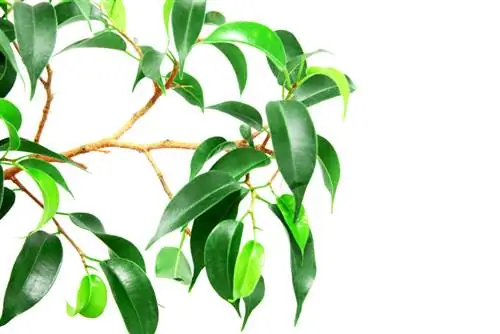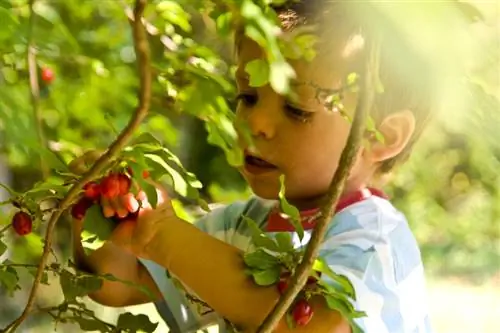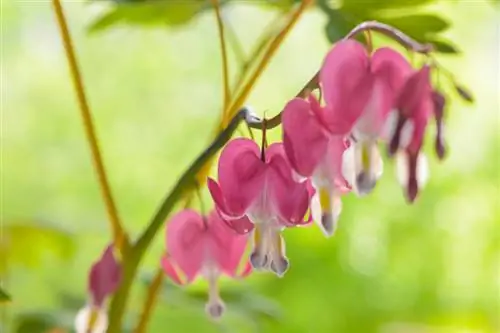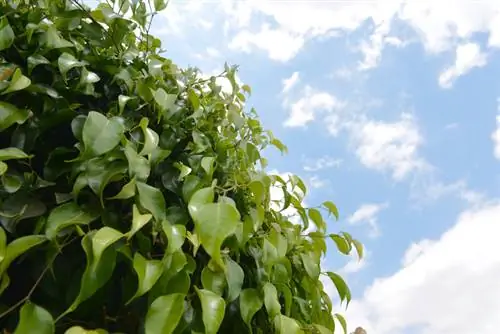- Author admin [email protected].
- Public 2023-12-16 16:46.
- Last modified 2025-01-23 11:21.
Safety is very important in the family household, especially when there is a baby, toddler or pet. The choice of houseplants is included in the precautionary measures, as many poisonous specimens can be hidden here. Read here what the toxic content of a birch fig is.
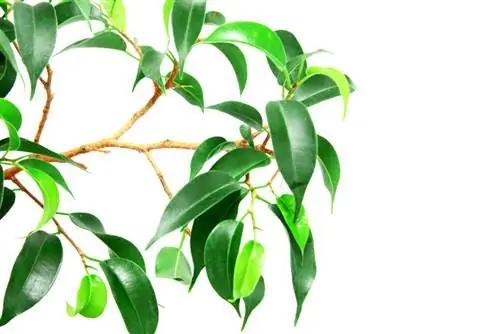
Is the Ficus Benjamini poisonous to people or pets?
The birch fig (Ficus Benjamini) is slightly toxic to children as its ingredients can cause nausea, stomach cramps, vomiting, dizziness and diarrhea if consumed. It is extremely toxic to pets and can cause respiratory paralysis. It is important to place this plant out of the reach of children and animals.
Slightly toxic for children
A Benjamini contains secondary plant substances such as flavonoids and furocoumarins. These cause symptoms of poisoning when consumed. While an adult does not reach the toxic dose due to the bitter taste, a baby or toddler is more at risk. Just licking a leaf and putting it in your mouth is enough to cause the following symptoms:
- Nausea
- Stomach cramps
- Vomiting
- Vertigo
- Diarrhea
If you suspect that your baby has eaten the leaves, please consult your pediatrician immediately. Take a few leaves with you as a sample so that the doctor can take the right countermeasures immediately.
Extremely toxic to pets
While the ingredients in a birch fig are classified as slightly toxic to humans, this does not apply to pets. Dogs, cats and rodents suffer from severe symptoms of poisoning and even respiratory paralysis after ingesting even the smallest amounts of leaves.
Please choose a location out of the reach of animals or choose a safe alternative as a houseplant. Never use birch fig cuttings as green food for rabbits.
Tip
Before pruning a Ficus benjamina, please take precautions against the sticky milky sap. Put on gloves and old clothing because possible stains are almost indelible. Ideally, you should cut back a birch fig in the garden to protect work surfaces and floors from irreversible dirt.

